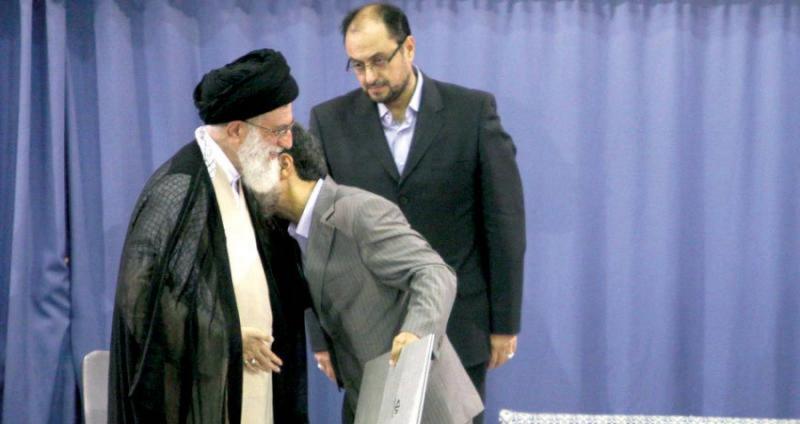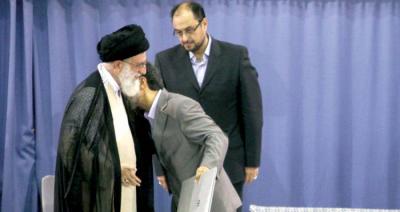The candidacy of former Iranian President Mahmoud Ahmadinejad for the upcoming presidential elections scheduled for the 28th of this month has put pressure on Supreme Leader Ali Khamenei, as the relationship between the two has not always been smooth, marked by constant tensions, criticisms, and challenges. Ahmadinejad has consistently challenged the West in previous years but later engaged in a far more dangerous game against the Supreme Leader, with this confrontation occurring openly.
**The Dismissal of the Intelligence Minister**
The first direct confrontation between the former president and the Supreme Leader began in 2011 when Ahmadinejad decided to dismiss Minister of Intelligence Heydar Moslehi from his position. However, just hours after the dismissal, Khamenei overturned the decision and ordered the reappointment of Moslehi, escalating tensions between the two. Additionally, Khamenei's supporters accused Ahmadinejad and his advisors of trying to diminish the influence of the religious institution, practices that were described as representing a "deviant current."
In 2012, he became the first president in the history of the Islamic Republic to be summoned by parliament for questioning over his policies. By 2013, his decision-making ability was curtailed, and he faced threats of being held accountable in parliament.
**Criticism in Poetry**
In 2012, Ahmadinejad indirectly criticized Khamenei on state television by citing poetry. A few years later, in 2018, the former Iranian president harshly criticized the judicial authority in his country and issued a fiery statement against the Supreme Leader from the Tehran Court of Appeals. Following a session in which his assistant, Hamid Baqaei, was prevented from attending, he accused Iranian authorities of assassinating complainers in prisons and subsequently claiming they were drug addicts who had committed suicide.
**Controversial Messages**
In the same year, Ahmadinejad published two controversial letters addressed to Khamenei, referencing the latter's remarks implying that he should avoid discussing the country's core issues. He also called for an end to the Revolutionary Guard's interference in the economy, warning of increasing public discontent against the regime. Ahmadinejad wrote an open letter to Khamenei in 2018 urging for "radical reforms" across the three branches of government—executive, legislative, and judicial—as well as within the Supreme Leader's office.
In 2021, the former president criticized remarks made by one of Khamenei's close associates regarding his intention to run for president, describing Khamenei's comment that participating in the last presidential elections was a "great epic and victory" as "silly and ridiculous."
It is worth noting that Ahmadinejad received support from Khamenei after his reelection in 2009 sparked protests that resulted in dozens of deaths and hundreds of arrests, shaking the ruling religious authority, before security forces led by the Revolutionary Guard suppressed the unrest. However, a rift occurred between the two when Ahmadinejad, while president, publicly supported placing limits on Khamenei's absolute power. The Guardian Council later declared Ahmadinejad ineligible to run in the 2017 presidential elections.
**A Former IRGC Officer**
Ahmadinejad is a former officer in the Islamic Revolutionary Guard Corps (IRGC) who attempts to reimage himself as a moderate politician by criticizing the religious institution. In past elections, he relied on the votes of poor religious citizens and the working class, who were frustrated by increasing economic pressures.




